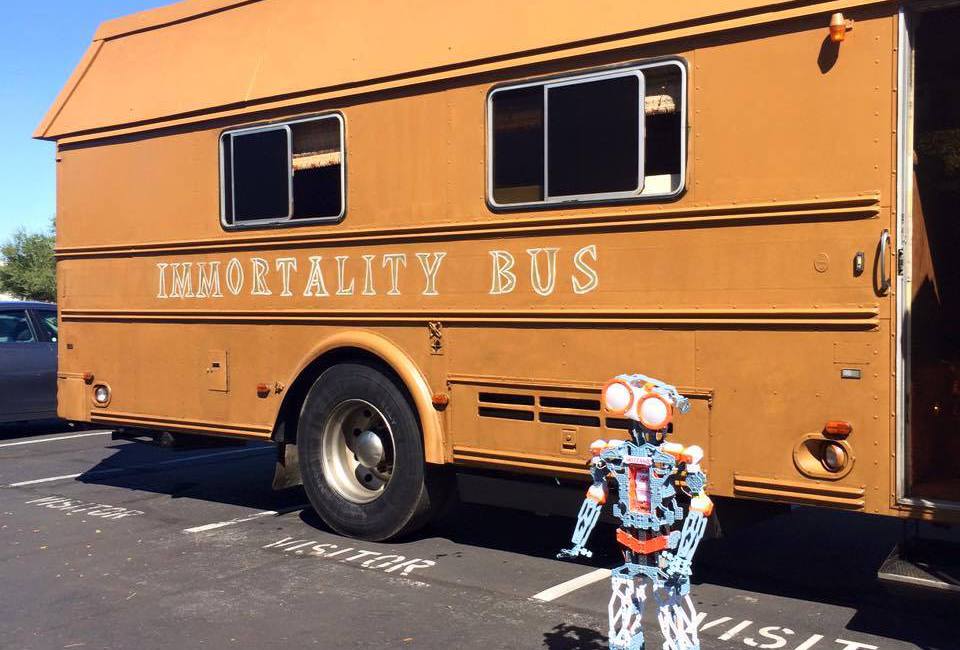Speaking of immortality, former Transhumanist Presidential candidate Zoltan Istvan is the subject of a well-written profile by Mark McConnell in the New York Times Magazine, adapted from his about-to-be-published book, To Be a Machine.
Unlike, say, Bobby Jindal, the newbie pol knew he had no chance of winning the White House, so he resigned himself to stump for radical life extension, gene editing and other futurist dreams–a CRISPR in every pod and a driverless car in every garage!–and ultimately vote for Hillary Clinton. He did so while acknowledging he didn’t dislike Trump, which seemed a puzzling stance to take on someone who was deeply bigoted, anti-science, wholly unqualified and seemingly unhinged.
In a pre-election Ask Me Anything, Istvan explained his preference for a traditional candidate like Clinton despite his outré opinions:
One main reason is that if Trump becomes President, and gets assassinated, Mike Pence will take office and that could be a disaster for science and tech, especially in the gene editing and AI era.
Trump can live out his term in perfect health and science in the U.S. is still going to get clobbered, much to the delight of China and other countries competing with us.
McConnell, who traveled part of the way with Istvan during his campaign across America aboard the “Immortality Bus,” reflects on the unsettling and, perhaps, enlightening experience. An excerpt:
He confided that his wife, Lisa, a gynecologist who worked for Planned Parenthood, recently started to express a keen interest in his doing something productive with his life. Lisa had just given birth to their second child and, what with the exponentially growing cost of living in the Bay Area, she was becoming increasingly concerned about the need to begin saving for their two daughters’ educations. He explained to me that he was reluctant to fritter away money on such things, given that by the time the girls were in their late teens, it would be possible to upload the informational content of a Harvard or Yale degree directly to their brains and at a fraction of what such an education costs today.
Lisa, he said, was largely tolerant of his views, but drew the line at gambling their children’s futures on the fanciful notion of some imminent technological intervention.
“Obviously she’s a little resistant to transhumanist ideas,” he said, “because in the near future her entire profession will be obsolete. What with actual childbirth becoming a thing of the past. You know, with babies being produced by ectogenesis and whatnot.”
When, some months later, Istvan emailed me about his decision to run for president, I immediately called him. The first thing I asked was what his wife thought of the plan.
“Well, in a way,” he said, “it was Lisa who gave me the idea. Remember how I said she wanted me to do something concrete, get some kind of a proper job?”
“I do,” I said. “Although I’m guessing running for president on the immortality platform was not what she had in mind.”
“That’s correct,” he confirmed. “It took a little while for her to come around to the idea.”
“How did you break it to her?”
“I left a note on the refrigerator,” he said, “and went out for a couple hours.”•

